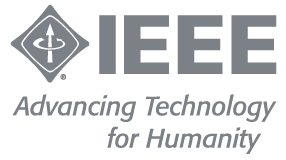Applications of Artificial Intelligence are emerging for all segments of our lives, and machines could soon have a significant impact. However, the big question is whether machines could replace humans in decision-making.

In 1997, when IBM’s Deep Blue beat World Chess Champion Garry Kasparov, some claimed that match conditions favored the computer. But today, chess programs running on mobile phones can defeat even the strongest human players. Like in a game of chess, decision-making in a self-drive car is a series of very complex yet logical steps, with inputs from multiple sensors. However, unlike chess, there is the need to react almost instantaneously. Are these not a harbinger of things to come? Can computers replace humans and that feelings have no role to play in decision-making?
There is ample empirical evidence to suggest that in the world of big data, “intelligent” machines are far more adept at making better decisions:
Of course, there are many decisions where intuition/feelings do not have any role. What is clear is that computers can make decisions much faster and with great precision if a scenario is within pre-defined constraints. But does faster mean better? And what does better mean? We must distinguish speed and agility from quality.
These programs and machines are very sophisticated and can be trusted to consistently do the expected, with surgical precision. Furthermore, they can learn iteratively. However, to say they are “intelligent” would be inaccurate because intelligence cannot be void of feelings.
When we refer to machine intelligence, we include the implementation of the decision. To better understand this, we must separate the quality of the decision and its performance. Whenever the interpretation of data is subjective, intuition comes into play.
Which would come first – a pilotless plane or a driverless car? Planes have been flying on auto-pilot for many years – much longer than self-drive cars, yet they still have a pilot sitting alongside them. Machines will not likely replace humans in the foreseeable future, at least not when it comes to matters of the heart (feelings). But they certainly will continue to aid humans, as never before.
Errol Wirasinghe Ph.D.
Dr. Wirasinghe is a TVLP instructor and leads the Decision Making and Negotiation classes. An industry expert, Dr. Wirasinghe has over 25 years of experience in Optimization, Creative Thinking, Opportunity Seeking, Decision-Making, and Strategic Planning for Shell Oil Co., Petroleos de Venezuela, Abu Dhabi National Oil Co., British Gas, Williams, and Enron. As an Oil & Gas industry specialist and a university professor, Wirasinghe has published papers on Management, Engineering, and Economics topics.
Photo credit: Unsplash

In 1997, when IBM’s Deep Blue beat World Chess Champion Garry Kasparov, some claimed that match conditions favored the computer. But today, chess programs running on mobile phones can defeat even the strongest human players. Like in a game of chess, decision-making in a self-drive car is a series of very complex yet logical steps, with inputs from multiple sensors. However, unlike chess, there is the need to react almost instantaneously. Are these not a harbinger of things to come? Can computers replace humans and that feelings have no role to play in decision-making?
There is ample empirical evidence to suggest that in the world of big data, “intelligent” machines are far more adept at making better decisions:
- Automotive engineers rely on diagnostic equipment to find problems in vehicles.
- Operations of Nuclear plants are controlled almost exclusively by computers.
- Statisticians rely on sophisticated computer programs to establish stunning correlations.
- Most commercial airplanes are fully capable of auto-landing.
- Drones are engaged in activities that were once unthinkable.
- Google’s success with the self-drive car seems to demonstrate that machines can, and will, replace humans, at least when it comes to driving.
- In surgical procedures requiring high precision, surgeons rely on computers and robots. Investment professionals rely on sophisticated AI routines for guidance.
- Even in presidential elections, political gurus rely on computers to identify voting patterns and develop strategies. Yet, despite such compelling evidence.
- Dating couples will continue to rely on their five basic senses, and more, before making a life-long commitment.
- Very few would purchase a home without visiting the house (except probably in the case of new construction).
- With so many lives at stake, most of us are not likely to get on a plane without a pilot, not at least today.
- You are driving on a narrow hill-country road with your entire family, including your little granddaughter.
- A large truck is tailgating at high speed, trying to overtake you.
- An old lady and her granddaughter are waiting on the side for a bus.
- Suddenly a little girl runs onto the road.
Of course, there are many decisions where intuition/feelings do not have any role. What is clear is that computers can make decisions much faster and with great precision if a scenario is within pre-defined constraints. But does faster mean better? And what does better mean? We must distinguish speed and agility from quality.
These programs and machines are very sophisticated and can be trusted to consistently do the expected, with surgical precision. Furthermore, they can learn iteratively. However, to say they are “intelligent” would be inaccurate because intelligence cannot be void of feelings.
When we refer to machine intelligence, we include the implementation of the decision. To better understand this, we must separate the quality of the decision and its performance. Whenever the interpretation of data is subjective, intuition comes into play.
Which would come first – a pilotless plane or a driverless car? Planes have been flying on auto-pilot for many years – much longer than self-drive cars, yet they still have a pilot sitting alongside them. Machines will not likely replace humans in the foreseeable future, at least not when it comes to matters of the heart (feelings). But they certainly will continue to aid humans, as never before.
Errol Wirasinghe Ph.D.
Dr. Wirasinghe is a TVLP instructor and leads the Decision Making and Negotiation classes. An industry expert, Dr. Wirasinghe has over 25 years of experience in Optimization, Creative Thinking, Opportunity Seeking, Decision-Making, and Strategic Planning for Shell Oil Co., Petroleos de Venezuela, Abu Dhabi National Oil Co., British Gas, Williams, and Enron. As an Oil & Gas industry specialist and a university professor, Wirasinghe has published papers on Management, Engineering, and Economics topics.
Photo credit: Unsplash


















